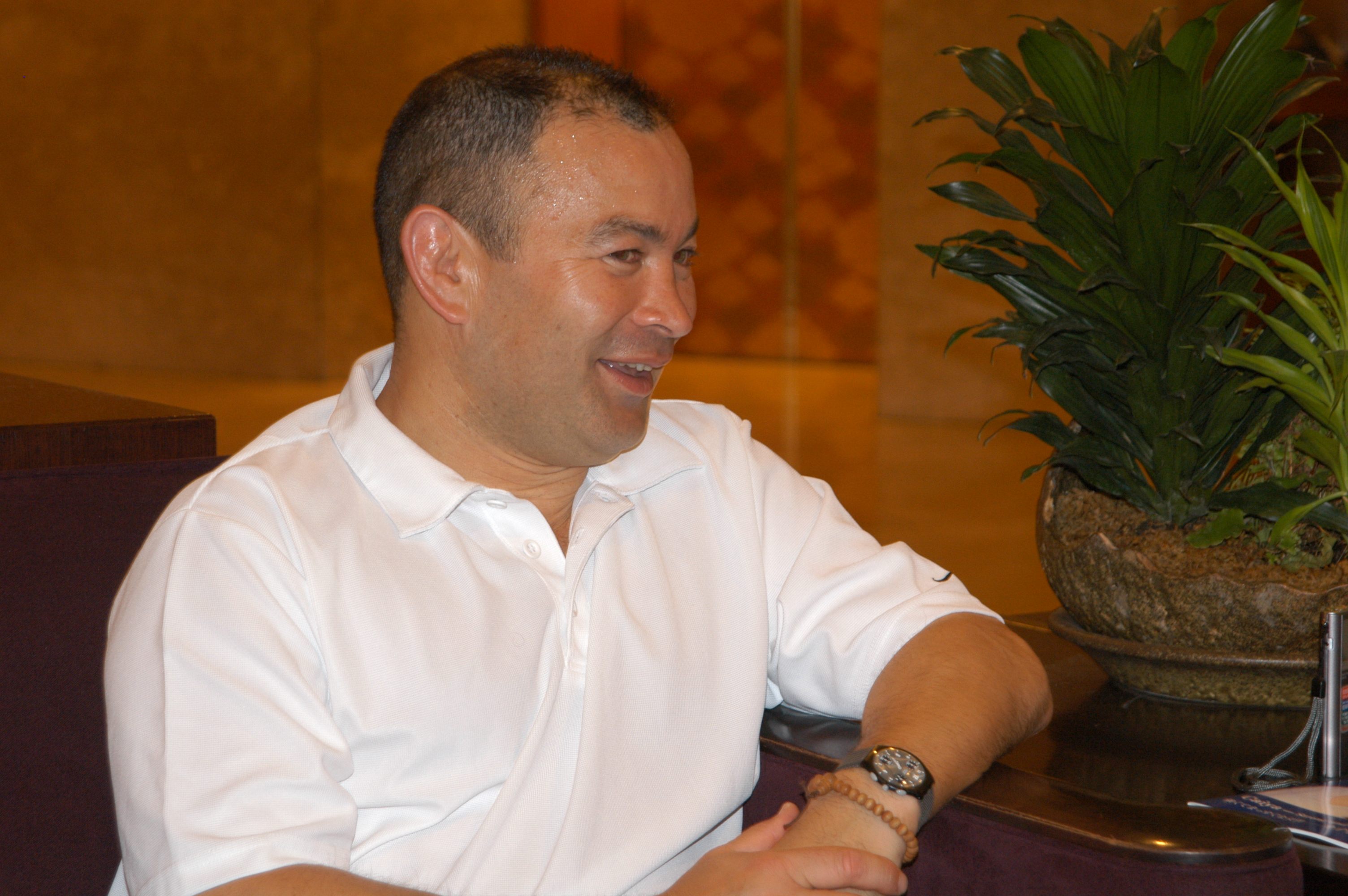It’s a try!
The crowd is on its feet and going wild as the Australian
Wallabies rugby team score between the posts to clinch the
game at Sydney’s Telstra Stadium.
Some rugby greats are born, while others, like Australian
rugby coach Eddie Jones, are created in the cauldron of
top-level international rugby. The likeable, down-to-Earth
Sydney-native has been leading Australia’s charge
to become the best team in the world since 2001 - and there’s
not a half time break in sight. Having won two rugby World
Cups, Australia can rightly claim the title of the most
decorated rugby nation.
Eddie’s path to the national coaching job kicked off
when he began coaching Second Grade at Sydney’s Randwick
Rugby Club in 1994. After being invited to instruct a touring
team from Japan’s Tokai University, the former teacher
was recognized for his coaching talent by the Japanese Rugby
Union in 1996 and moved to Japan to coach the national side.
In the following year, Eddie took over the head coach job
for the Japanese corporate team, Suntory.
Flush with his success in Japan, he returned to Australia
where he took the helm of the Australian provincial team
ACT Brumbies for the 1998 season. After leading the squad
to an emphatic Super 12 final against the formidable New
Zealand Canterbury Crusaders team, Eddie was voted Coach
of the Year two years in a row at the annual Super 12 awards.
He then steered the Australia 'A' team to victory against
the British Lions in 2001 and took command of the Wallabies
in the same year.

“I want to be as good as I can be at everything
I am doing.”
Why rugby? Inspired by a high school P.E. teacher who was
“fanatical” about rugby, Eddie joined up and
played Rugby League until age 15 before switching codes
to Rugby Union.
Only the rare few players make successful coaches. What
magic formula has led Eddie to make a successful transition
from player to national Coach? “My teaching background
has definitely been a significant factor,” he says.
“When you teach you learn to communicate information
which is essentially what coaching is all about. I was also
very lucky to spend 18 months in Japan where I coached 2-3
sessions a day to 80-90 students at Tokai University. All
that repetition certainly helped, but the teaching background
has been the most significant factor.”
Eddie’s career has progressed in leaps and bounds
in the 10 years he has been coaching. What has driven him
to be there for so long? “I want to be as good as
I can be at everything I am doing,” he replies. “I
have been lucky to have had a few breaks along the way that
have allowed me to progress quicker than most other people.
So a combination of luck and wanting to be as good as I
can be has probably got me in the position I am in now.”
What does he believe are the key essentials to being a coach
of a national rugby side?
“You have to have a good knowledge of the game,”
Eddie replies. “You have to want to lead which means
you put yourself out on a limb. You have got to make decisions
and you need to be more worried about doing a good job than
anything else, and I think that allows you to cope with
the external pressure that certainly comes with a national
coaching job.”
In Eddie’s eyes, how can the Japanese rugby team improve
their game? “The big thing is developing their style
of play. Japan will never play a power game. They are the
shortest, lightest team in the world but they’ve also
got great speed and great tenacity and some great handling
skills, so what they’ve got to do is put a game together
that suits their resources.”
“Just being in a different culture is stimulating.”
Eddie has surprisingly strong connections with Japan through
his Japanese wife and mother. How does he find coming to
Japan? “It is very relaxing because firstly just being
in a different culture is stimulating, and secondly there’s
no media pressure so I can go out and relax and enjoy myself,”
he says.
Eddie met his wife Hiroko when they were teaching at the
same school in Sydney. “We started going out as she
was about to leave and go back to Japan to live,”
he says. “My wife and mother have similar characteristics
in that they are both very strong women,” he says
with a laugh.
What aspects of Japanese culture would he like to import
to Australia? “Onsen – they are one of the most
relaxing places you can ever go!” And vice versa?
“Quality of life. Australians tend to have a reasonable
balance between work and relaxation certainly now compared
to 20 years ago. They know how to unwind.”
Is Japan involved in future plans? “At the moment
I am committed to coach Australia until the 2007 World Cup
then after that I’ll appraise things. But I would
like to coach Japan again,” he says.
If so, we’ll be cheering him on from the sidelines!
Interview and Article: Jonathon Walsh






